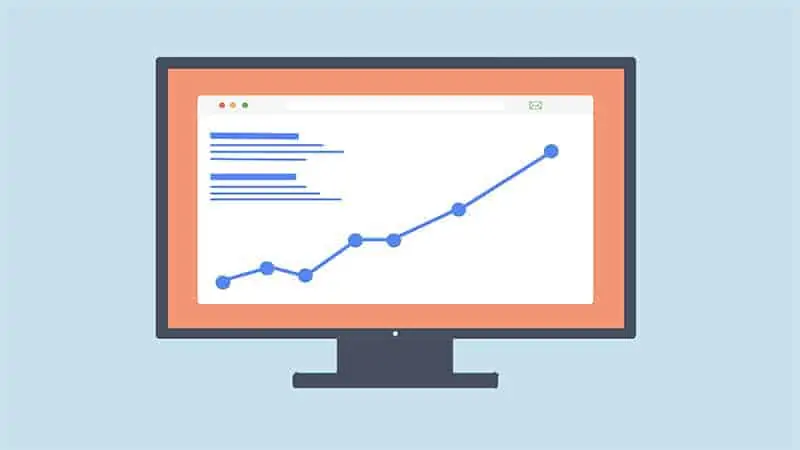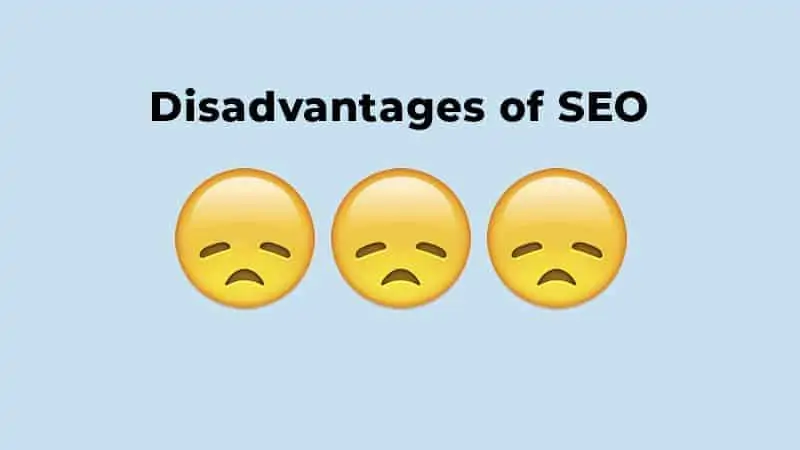Search Engine Optimisation is important for small businesses as it is a relatively inexpensive form of digital marketing with high Return on Investments (ROI). There are about 77 267 searches on Google each second, with the average online user performing 3.4 searches a day (Moz, 2017). These data are just based on the Google search engine and have not factored in searches from other major players such as Bing, Yahoo, and many more. Therefore, the potential reach that SEO provides for small businesses is something that should not be missed out.
What is SEO?
SEO is the process of increasing the quantity and quality of traffic to your website via the use of search engines such as Google, Bing, and Yahoo.
How does SEO work?
The purpose of search engines is to provide their users with the most relevant answer to their queries. They do this by sending crawlers (or you can call them bots) to crawl all over your website to understand what your website is about, and then decide if what you have on your website is relevant to what the person is searching for.
The reason why I use the term relevant content instead of good content is that even if your content is detailed and full of information, it might not be relevant to someone who is searching for something similar to that topic. You may have a well-written article optimised with step by step images on how to change a car tyre, but if someone needs to change tyres for a van, then your article wouldn’t be as relevant to the person. It needs to be both good and relevant to be on top of Google search!
How does SEO help your small business – Advantages of SEO
SEO helps small businesses with their brand awareness, provides qualified leads, allows businesses to compete against bigger brands, and builds trust amongst your customers. All these benefits while having relatively low costs due to the organic traffic sent your way.
Increased brand awareness
Being on the first page of Google increases the probability of your website being seen, and visitors who have not heard of your business before are now aware of what you do and what you can offer to them. It doesn’t matter if they visit your website or not, the fact that your brand name is shown to a potential customer should be a good enough reason for you to get started on SEO.
Highly qualified leads
People who make searches on these search engines often have their mind set to look for something specific. This is what SEOs call search intent. When searchers click on your website listing and find a solution for their needs, they are more likely to convert into a lead or a paying customer. This saves you time and money in qualifying your leads because these visitors are ready to make the purchase decision.
A chance to compete against bigger brands.
SEO helps your marketing in a way that you can compete with big and well-known players in the industry. These players usually have years of history and have a ton of money to spend on advertising. If you’re a small business or even a home business, you should not leave SEO out of your digital marketing strategy especially if you have a small marketing budget.
Builds trust
SEO helps you build trust amongst the searchers due to the fact that you are ranking on Google itself. I’m not saying that everyone who is ranked on Google can be trusted, but if Google can trust your website to put it together with bigger and more authoritative brands, why won’t the average searcher?
Relatively cheap
Search engine optimisation is relatively cheap in comparison to other types of digital marketing. If you are able to spend hours learning relevant skills, you can tweak your website to optimise it for SEO, write good and relevant articles, and slowly build backlinks for your website. The only downside to this is it takes a lot of time as you have to pick up basic coding and SEO-optimised article writing skills.
You can avoid this by hiring an SEO freelancer to make the relevant amendments for you on your website. Then you can either start writing content and get it proofread, or you could outsource the writing entirely to someone who knows how to optimise articles for SEO. Do remember to check the quality of work and tweak the article to how you would write it to give a personal touch to it. If you have the means, you can decide to hire an SEO agency to handle all things search engine.
So is it really effective?
Look at the search result above, Pain Clinic @ Wellness Philosophy managed to rank their home page 2nd for that search query, going up against 3 hospitals and WebMD! This not only increases their chances of being seen by people looking for clinics to help with their pain, but the fact that they are ranking above these websites puts them in a level playing field and increases their chances of getting found by a qualified lead. If I’m looking for someone to help me with my pain, I would definitely check out their website as an alternative to hospitals.
Tell me how this isn’t beneficial to small businesses? Heck, it benefits even larger businesses!
Disadvantages of SEO: How it is bad for small business
Long term results
The effects of search engine optimisation only come in after many months of effort – minimally 6-12 months. If your website has a long history online, and have previously ranked a few articles on Google before, it is possible to do it in less than that amount. As a rule of thumb, anyone who tells you they can do it lesser than that is usually using black hat SEO techniques, which is unsustainable and risk getting your website off Google permanently.
If you need to see immediate results, I’m sorry but SEO isn’t the immediate solution for you. Consider using other types of platforms for your digital marketing strategy. Advertising is a good way to see immediate results while waiting for your SEO efforts to pay off.
Undercapacity due to sudden influx
If you decide to use SEO as part of your digital marketing strategy, there is a possibility that you might see a sudden influx of leads or customers after some time. If you are unable to meet these demands, there is potentially a risk of losing all these customers to your competitors. If your small business is able to scale up quickly to meet these demands, then you should have nothing to be worried about.
However, if your business model restricts the capacity levels that you can provide, consider preparing short-term solutions to increase capacity when the influx comes it. This way, it buys you some time before you implement a long-term solution to tackle this risk.
Increase in spam
If your website is ranking highly on any search engines, chances are you might receive spam. Be it emails or contact form submissions; these spammers will definitely find your website if you’re doing well for SEO.
This can be easily controlled through the use of anti-spam systems in place to prevent your emails from being overloaded by spam. Also, make sure that your personal details are private when registering your domain. This will cost a small sum monthly, but I assure you the amount you spend here will be worth the money.
Should small businesses handle their own SEO?
This is a question you need to ask yourself before making your decision. Can you spare your available hours a day to read up on how to optimise your website for search engines? Can you afford to not focus on your business all the time just to watch videos on the tips and tricks for SEO? Are you willing to spend money on SEO tools to help with your website and articles? If your answer is no, chances are you will have to outsource this to an SEO consultant in Singapore.
Outsourcing is a better idea as you get to spend your available time on more important aspects of your business. SEO is a long-term strategy and requires consistent effort from the start. Look for a reputable agency if you can afford it, or a freelancer to handle it for you. I promise that this will not only save your time and money, but it will allow you to earn more by focusing on growing and scaling your business.
Conclusion
Is search engine optimisation important for small businesses? Yes. Despite the disadvantages of SEO listed above, businesses stand to benefit more from starting their SEO efforts now than to not at all. The disadvantages can be easily prevented through pre-emptive measures, and all you have to do is be patient for Google to work its magic.
If you’re a small business and am able to serve customers from a store, then local SEO might be something that you consider setting up first. It’s faster in ranking your site and there’s lesser competition for you for the keywords you want. I write about why local SEO is important for small businesses here.
Should it be your only digital marketing strategy? It depends. If you can afford to wait for results, then potentially yes, it can be the only strategy you take online. However, a combination of different online strategies can help boost your business tremendously. Besides, what’s so horrible about a relatively low-cost long-term plan in your marketing strategy?








